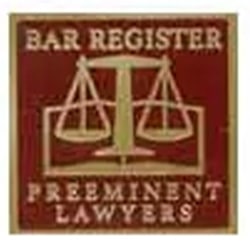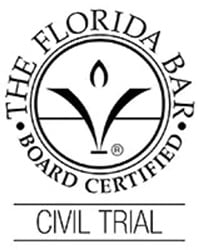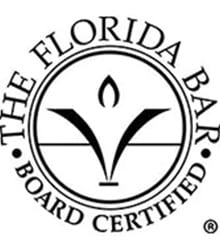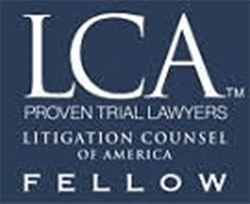When you’re buying or selling property, choosing a real estate lawyer is one of the most important decisions you’ll make—yet it’s often treated as an afterthought. Many people wait until they’re deep into a transaction before seeking legal help, but this approach can lead to costly mistakes and unnecessary stress. Whether you’re a first-time homebuyer or a seasoned property investor, having the right legal professional in your corner can make the difference between a smooth closing and a complete disaster.
Real estate transactions involve complex contracts, title issues, zoning regulations, and significant financial commitments. A skilled real estate lawyer protects your interests, catches problems before they become catastrophes, and ensures you understand exactly what you’re signing. But with so many attorneys advertising their services, how do you separate the truly qualified from those who just dabble in real estate law?
Let’s walk through everything you need to know about finding and hiring the perfect real estate lawyer for your situation.

Property Dispute Causing Stress? Let Us Help You
Property Dispute Causing Stress? Let Us Help You
Get your FREE & confidential case review todayWhy You Should Consider Hiring a Real Estate Lawyer Before Your Realtor
Here’s something most people don’t realize: consulting a real estate lawyer before you even contact a realtor can actually save you money and heartache down the road. While real estate agents are fantastic at finding properties and negotiating deals, they’re not licensed to provide legal advice.
A real estate lawyer can help you understand your legal rights and obligations before you start house hunting. They can review pre-approval documents, explain the implications of different financing options, and help you understand what clauses to include in your offers. This early involvement means you’re educated and protected from day one.
Additionally, if you’re selling property, a lawyer can advise you on disclosure requirements specific to your state, help you understand potential liability issues, and ensure your listing agreement with a realtor protects your interests. Think of it as building your team in the right order—legal foundation first, then marketing and sales expertise.
How to Find the Right Real Estate Lawyer
Finding the right real estate lawyer requires more than a quick Google search. You need someone with specific expertise, local knowledge, and a communication style that works for you.
Start with Specialization
Not all lawyers are created equal. You want someone who focuses primarily on real estate law, not a general practitioner who handles real estate “on the side.” Real estate law is complex and constantly evolving, so specialization matters. Look for attorneys who dedicate at least 50% of their practice to real estate transactions.
Seek Local Expertise
Real estate law varies significantly by state and even by municipality. An attorney who handles transactions in your specific area will be familiar with local regulations, common title issues, and the quirks of your local real estate market. They’ll have relationships with local title companies, surveyors, and other professionals that can make your transaction smoother.
Ask for Referrals
Your best source for finding a great real estate lawyer is often word-of-mouth. Ask friends, family members, or colleagues who’ve recently bought or sold property about their experiences. You can also ask your mortgage broker, accountant, or other trusted professionals for recommendations. Real estate agents can provide referrals, too, though you should interview multiple candidates rather than automatically going with your agent’s suggestion.
Check Credentials and Reviews
Once you have some names, verify that each attorney is licensed to practice in your state and check if they have any disciplinary actions on their record. Your state bar association website is the place to start. Then look at online reviews, but read them critically—focus on patterns rather than individual complaints or glowing reviews.
What to Ask Your Real Estate Attorney

Experience and Expertise Questions
Start by asking about their experience with transactions similar to yours. If you’re buying a condo, ask how many condo purchases they’ve handled. If you’re dealing with a complex commercial property, inquire about their commercial real estate background. Find out how long they’ve been practicing real estate law and how many closings they handle annually.
Also, ask about their familiarity with potential issues you might face. Are they experienced with short sales, foreclosures, or investment properties if that’s relevant to your situation? Do they handle landlord-tenant law if you’re buying a rental property?
Communication and Availability
Understanding how your lawyer communicates is crucial. Ask how quickly they typically respond to emails and phone calls. Find out who will actually be handling your file—will it be the attorney you’re speaking with, or will a paralegal handle most of the work? There’s nothing wrong with paralegals doing routine tasks, but you should know upfront who your main contact will be.
Ask how they prefer to communicate. If you’re someone who likes quick text updates and they only do formal emails, that mismatch could cause frustration. Similarly, find out their availability for closing—can they accommodate your schedule, or will you need to work around theirs?
Process and Timeline Questions
Every real estate transaction has steps and timelines. Ask your potential lawyer to walk you through their typical process from engagement to closing. How soon do they need to review contracts after you’ve made an offer? What documentation will they need from you, and when? What potential delays should you anticipate?
Understanding the process upfront helps set realistic expectations and prevents surprises. It also gives you insight into how organized and proactive the attorney is—do they have systems in place, or does everything seem ad-hoc?

Property Dispute Weighing on You? Let Us Help You
Property Dispute Weighing on You? Let Us Help You
Get your FREE & confidential case review todayHow Much Should a Real Estate Lawyer Cost?
Legal fees for real estate transactions vary widely depending on your location, the complexity of your transaction, and the lawyer’s fee structure. Understanding typical costs helps you budget appropriately and spot red flags.
Fee Structures
Real estate lawyers typically charge in one of three ways:
Flat Fee: Many attorneys charge a flat fee for routine residential transactions. This might range from $500 to $2,500, depending on your location and property type. Flat fees are attractive because you know the cost upfront, but make sure you understand what’s included and what would trigger additional charges.
Hourly Rate: Some lawyers bill by the hour, which can range from $150 to $500 or more per hour in major metropolitan areas. Hourly billing makes sense for complex transactions, but ask for an estimate of total hours so you’re not blindsided. Request itemized billing so you can see exactly what you’re paying for.
Percentage of Purchase Price: In some areas, particularly for commercial real estate, lawyers may charge a percentage of the transaction value. This is less common for residential deals.
What’s Included
Always clarify exactly what services are covered by the quoted fee. A comprehensive real estate lawyer’s services should include:
- Reviewing and negotiating the purchase agreement
- Conducting or reviewing the title search
- Reviewing title insurance policies
- Handling or reviewing the closing documents
- Attending the closing
- Addressing any issues that arise before closing
Some lawyers charge extra for services like negotiating repairs after inspection, handling complex title issues, or dealing with unusual contract clauses. Get this in writing upfront.
Geographic Variations
Legal fees vary dramatically by location. In major cities like New York or San Francisco, expect to pay significantly more than in smaller markets. Some states also require attorneys for all real estate closings, while others don’t, which affects both availability and pricing.
Don’t automatically choose the cheapest option. A lawyer who charges $800 but misses a major title issue could cost you tens of thousands of dollars down the road. Focus on value—the combination of expertise, service, and reasonable pricing.
Do Real Estate Lawyers Negotiate?
Absolutely, and they should. Negotiation is a core function of what real estate lawyers do, though their negotiation role is different from that of a real estate agent.
Types of Negotiation
Real estate lawyers negotiate contract terms, not property price. Once you and the seller have agreed on a price (typically through your real estate agents), your lawyer steps in to negotiate the legal terms of the purchase agreement. This includes:
Contract Contingencies: Your lawyer can negotiate contingencies for financing, inspections, appraisals, and the sale of your current home. They’ll work to ensure these contingencies protect your interests and give you appropriate exit opportunities if needed.
Closing Terms: Attorneys negotiate closing dates, possession dates, and what happens if either party fails to close on time. They can build in protections for delays and ensure the contract reflects the actual understanding between parties.
Repairs and Credits: After your home inspection, your lawyer can negotiate repairs, credits, or price reductions. They’ll put these agreements in writing to ensure they’re legally enforceable.
Title Issues: If the title search reveals problems—like liens, easements, or boundary disputes—your lawyer negotiates resolutions. This might mean getting the seller to clear title issues before closing or negotiating a price reduction if certain issues can’t be resolved.
Working with Your Agent
The best outcomes happen when your real estate agent and lawyer work together. Your agent handles price negotiations and property-specific issues, while your lawyer ensures the legal terms protect you. They should communicate regularly to ensure everyone’s on the same page.
A good real estate lawyer won’t step on your agent’s toes but will catch legal issues your agent might miss. Conversely, your agent brings market knowledge that complements your lawyer’s legal expertise. It’s a team approach, with each professional playing their role.
Red Flags to Avoid When Choosing a Real Estate Lawyer
Not every lawyer is the right fit. Watch out for these warning signs:

Poor Communication: If it takes days to get a return call during the interview process, imagine what it’ll be like when you’re under contract with a closing deadline approaching.
Pressure Tactics: Be wary of lawyers who push you to make quick decisions without explaining your options or who seem more interested in closing the deal than protecting your interests.
Unclear Pricing: If a lawyer can’t or won’t give you a clear explanation of their fees and what’s included, that’s a major red flag. Everything should be in writing.
No References: A reputable real estate lawyer should be willing to provide references from recent clients. If they hesitate, question why.
Making Your Final Decision
Choosing a real estate lawyer is ultimately about trust, expertise, and compatibility. After your interviews, ask yourself:
- Do I feel confident in this person’s knowledge and experience?
- Do they communicate in a way I understand and prefer?
- Are their fees reasonable for the services provided?
- Do I trust them to protect my interests?
- Are they available when I need them?
Trust your instincts. If something feels off, it probably is. The right lawyer will make you feel informed, protected, and confident about your transaction.
Remember, this person will be representing you in one of the biggest financial transactions of your life. Taking time to choose wisely now prevents problems later. Don’t let anyone—your realtor, the seller, or even the lawyer themselves—rush you into a decision you’re not comfortable with.

Property Dispute Causing Stress? Let Us Help You
Property Dispute Causing Stress? Let Us Help You
Get your FREE & confidential case review todayRelated Article(s)
What “Et Al” Means in Real Estate: A Complete Guide
Do Real Estate Lawyers Go to Court? Understanding Their Role in Legal Proceedings












